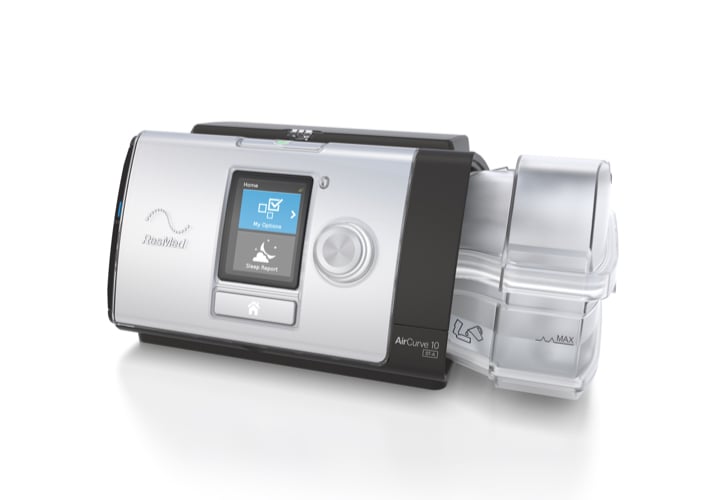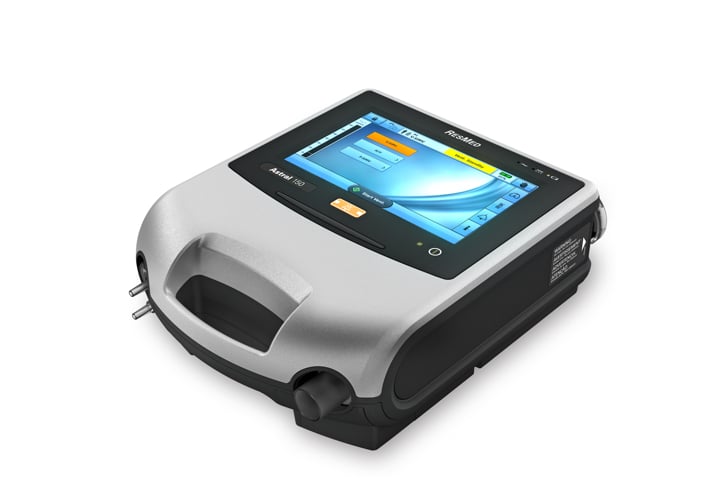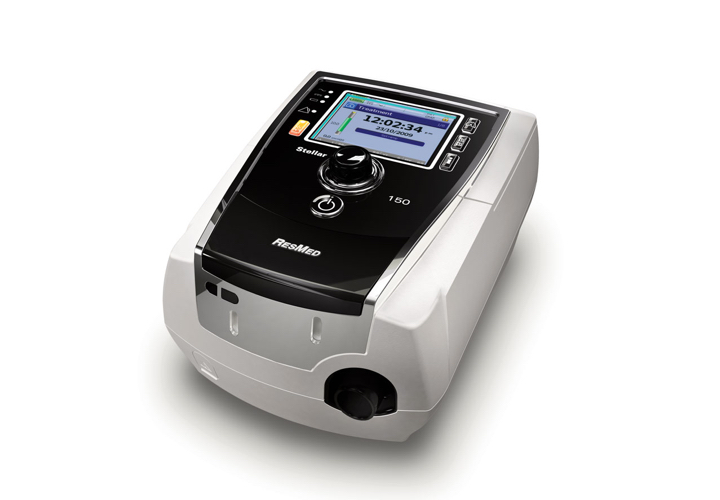Chronic obstructive pulmonary disease, or COPD, is an umbrella term for progressive lung diseases that affect your ability to breathe properly. COPD most commonly consists of chronic bronchitis and emphysema.
As COPD progresses, it becomes increasingly difficult to inhale and exhale. Mechanical ventilation may be prescribed to help people breathe when they are not able to effectively breathe on their own.
When COPD makes it difficult to breathe, it can mean oxygen levels in the bloodstream become too low, and carbon dioxide levels become too high. Oxygen therapy – either through oxygen tanks or oxygen concentrators – is commonly prescribed to help increase oxygen levels and support organ function. Some people with COPD may only need oxygen therapy. Others, however, may need help stabilizing the levels of oxygen and carbon dioxide in the body.
That’s where mechanical ventilation can help. Instead of a steady stream of oxygen, non-invasive ventilation (NIV) uses pressurized room air delivered through a mask or mouthpiece to make the act of inhaling easier. It uses a lower pressure or no pressure at all to help with the exhalation of carbon dioxide. Your doctor may decide that you would benefit from using both mechanical ventilation and oxygen therapy at home.
Non-invasive ventilation can be used in the hospital and at home. When used in the hospital, it can help to quickly reduce the carbon dioxide levels and aid in better gas exchange, helping to foster a faster recovery and hospital release. 1 Source: Ram FS et al., “Non-invasive positive pressure ventilation for treatment of respiratory failure due to exacerbations of chronic obstructive pulmonary disease,” Cochrane Database Syst Rev, 2004;1:CD004104.
When you go home, your doctor may want you to continue using a ventilator. Home use of non-invasive ventilation has been shown to:



Find out what your options are if you need mechanical ventilation.
You can still travel with a ventilator, it’s all about planning ahead.
Source: Ram FS et al., “Non-invasive positive pressure ventilation for treatment of respiratory failure due to exacerbations of chronic obstructive pulmonary disease,” Cochrane Database Syst Rev, 2004;1:CD004104.
Source: Ram FS et al., “Non-invasive positive pressure ventilation for treatment of respiratory failure due to exacerbations of chronic obstructive pulmonary disease,” Cochrane Database Syst Rev, 2004;1:CD004104.
Source: Köhnlein T et al., “Non-invasive positive pressure ventilation for the treatment of severe stable chronic obstructive pulmonary disease: A prospective, multicentre, randomised, controlled clinical trial,” Lancet Respir Med 2014;2:698–705.
Source: Galli JA et al., “Home non-invasive ventilation use following acute hypercapnic respiratory failure in COPD,” Respir Med 2014;108(5):722–8.
Source: P. Murphy et al., “Effect of Home Noninvasive Ventilation With Oxygen Therapy vs Oxygen Therapy Alone on Hospital Readmission or Death After an Acute COPD Exacerbation. A Randomized Clinical Trial,” JAMA, published online May 21, 2017. doi:10.1001/jama.2017.4451.